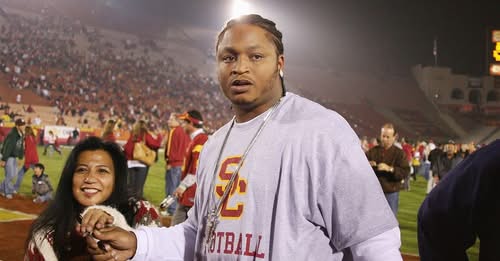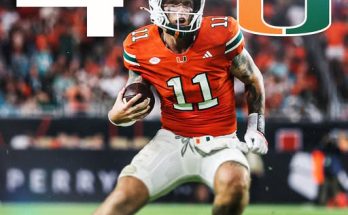The departure of a coach from one blue-blood college football program to another is always a seismic event, but when Lincoln Riley left the University of Oklahoma for the University of Southern California, the aftershocks were felt far beyond Norman and Los Angeles. It was a move that promised a return to glory for the Trojans, a program steeped in a storied past but mired in a decade of mediocrity. Riley was hailed as the savior, the offensive mastermind who would restore the “SC” to national prominence, and for a fleeting moment, it seemed he might just deliver on that promise. His inaugural season saw the Trojans surge to an 11-win season, a Pac-12 Championship appearance, and the Heisman Trophy for his star quarterback, Caleb Williams.1 The momentum was palpable, the hype machine in full throttle. Yet, in the seasons that have followed, the narrative has shifted dramatically. The initial euphoria has given way to a growing sense of frustration and, for some, a deep-seated anger that has now boiled over into public condemnation from one of the most celebrated figures in USC football history.
The former Oklahoma coach, now the head of the Trojans’ program, found himself in the crosshairs of LenDale White, a name that evokes the golden era of USC football. White, a powerhouse running back who, alongside Reggie Bush, formed one of the most dominant backfields in college football history under coach Pete Carroll, has never been one to mince words.2 His public commentary is often raw, unfiltered, and deeply passionate about the state of his alma mater. As the Trojans’ performance on the field has regressed, so too has White’s patience, culminating in a blistering social media tirade that laid bare the frustrations of a fan base and, more pointedly, an alumni network that feels betrayed by the current direction of the program.
White’s criticisms are not simply about a team losing games; they are a fundamental questioning of Lincoln Riley’s entire coaching philosophy and his commitment to the traditions that make USC unique. In a series of now-viral posts, White accused Riley of “stealing” from the program, a scathing reference to the coach’s lucrative contract and the underwhelming results it has yielded.3 He called Riley a “glorified QB coach” and suggested he “ran” from the competitive landscape of the SEC, where Oklahoma now resides, to the less-daunting Big Ten.4 The term “chewed out” hardly seems to do justice to the ferocity of White’s critique, which was a full-throated assault on Riley’s character, his coaching ability, and his value to the university.
LenDale White’s frustration is rooted in the contrast between the USC he knew and the program he sees today. Under Pete Carroll, USC was a bastion of physical, hard-nosed football. The Trojans were known for their dominance in the trenches, their ferocious defense, and an offensive identity that was built on a punishing run game. They were a team that demanded toughness and discipline, and they were relentless in their pursuit of championships. White was a living embodiment of that ethos, a bruising back who ran with a swagger and a ferocity that opposing defenses feared. He saw firsthand what it took to build and sustain a championship culture at USC. Now, he sees a program that, in his view, has abandoned those principles in favor of an offensive-centric, finesse-based approach that has failed to deliver consistent results.
The numbers bear out some of White’s underlying points. While Riley’s offensive schemes have produced high-flying, explosive plays and a Heisman winner, the team’s defense has been a perennial liability.5 In the years following Riley’s debut season, the defensive struggles have become a glaring weakness, a chink in the armor that has led to a steady decline in the win-loss column. The Trojans went from an 11-win season to an 8-win season, and then a 7-win campaign, and now face a critical juncture in the program’s history. The talent Riley has recruited, particularly on the offensive side of the ball, has not translated into the national championships that were so boldly predicted upon his arrival. The program seems to be perpetually stuck in a cycle of high expectations and disappointing finishes, and the blame, according to White and many others in the USC family, falls squarely on Riley’s shoulders.
The criticism from a figure like LenDale White is particularly damaging because it comes from within the USC family itself. It’s not the usual noise from national media analysts like Paul Finebaum, who have also been highly critical of Riley’s tenure, but a voice of a former player who bleeds cardinal and gold. It’s a voice that resonates with the fan base and with other former players who share his sentiment. It’s a sign that the fissures within the USC program are not just about a few bad games; they are about a fundamental disconnect between the coach and the values of the institution he was hired to resurrect. The question now is whether Riley can mend these fractured relationships and prove that he is the right man for the job, or if the mounting pressure from within will ultimately force a change. For a program with a proud history and an impatient fan base, the clock is ticking, and the words of a former great like LenDale White serve as a stark reminder of what is at stake.



